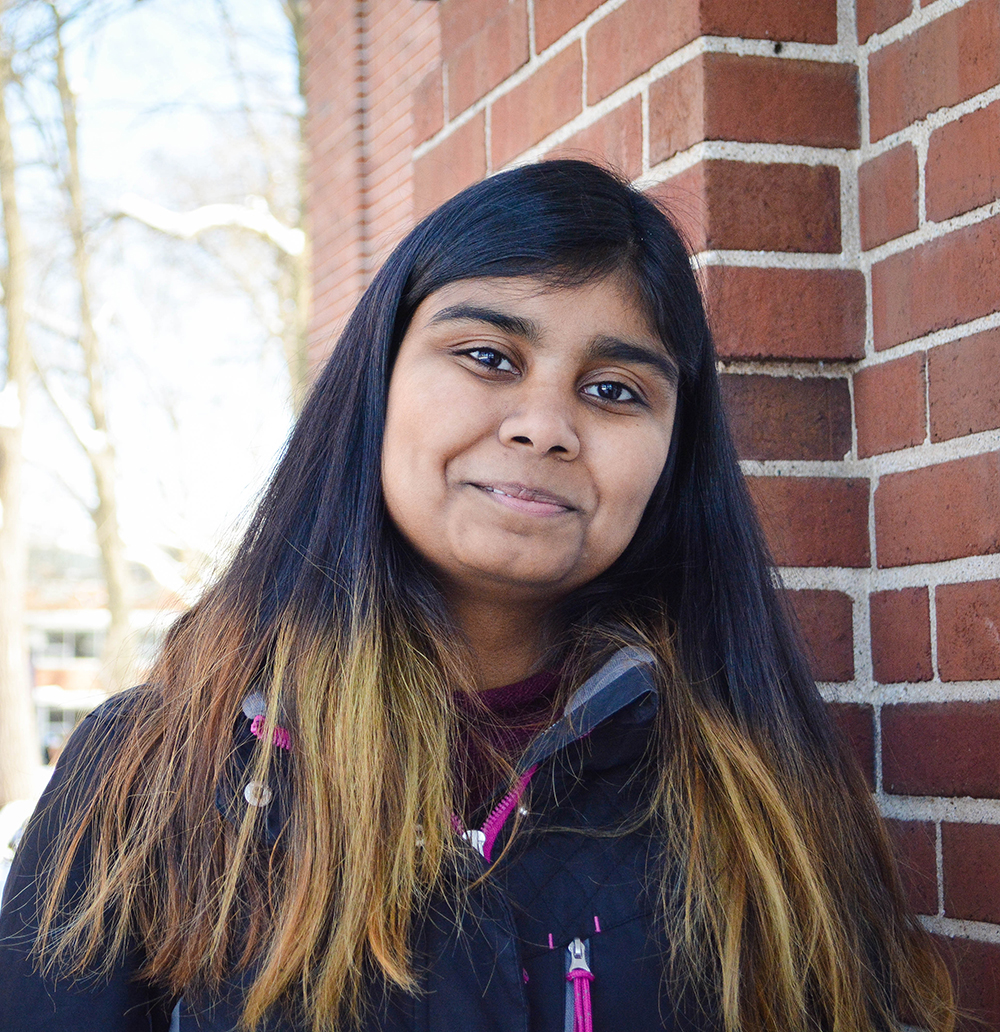Growing up in Delhi, India, a place that has come to be known as the rape capital of the world, issues involving women’s safety and equality have always been a huge part of my life. I have always been a feminist.
Even in high school, I was involved in various clubs and organizations that supported women’s health, safety and empowerment. Yet, if you were to ask Goshen College students about my involvement and participation in feminist issues on campus, they wouldn’t have much to say.When I first came to Goshen College, I was very excited to see students taking action towards equality. Soon, though, that excitement disappeared because I saw that action come in the form of aggression. For me, feminism at Goshen was exclusive to the most vocal, and centered around calling out those that pull you down instead of celebrating the ones that make a positive difference.
There were times when I couldn’t have conversations about women’s equality with my male classmates because they were tired of being called sexist for things they unintentionally said in previous conversations. Even as a woman, there were instances when I was targeted as someone who didn’t care about women because I didn’t “show” that I cared.
As a part of my film major, I had the opportunity to go to Los Angeles last semester. I happened to be there at a time when news channels were bombarded with stories of sexual assault cases in Hollywood. Seeing how the women in the industry dealt with this issue encouraged me to revisit the definition of feminism.
I attended the Women in Entertainment Summit, which was a day long event that hosted various female filmmakers. The event was not aimed at talking through problems that women face in the industry, but instead it aimed at acknowledging and celebrating women’s accomplishments across the film industry. A common point among all the speakers was that feminism today tends to focus on problems rather than solutions.
Greta Gerwig and Patty Jenkins, the directors of “Lady Bird” and “Wonder Woman” respectively, said that their form of tackling the problem was showing female empowerment through their films rather than simply talking about it. They stated that their success came from their desire to use their strength and talent to tell stories of love in the midst of hate. It’s an idea women in the industry want to share as they continue working towards women’s empowerment. They said that the first step is loving and working with, and not against, our male coworkers.
Most of the successful female filmmakers that I met echoed actress Emma Watson’s famous statement, stating that people have made “fighting for women’s rights” a synonym for “man hating.” Equality is not about pushing one side down for the other one to rise — it’s about having conversations to find that sweet spot between being criticizing and celebrating. Almost all of the women at the summit said that their success in the film industry was as much a result of the support of their male colleagues as the female ones. I personally have received a lot of encouragement from both the males and females in my life, whether it’s been my teachers, my friends or my parents.
I learned last semester from G.D. Anderson, a well known author, that feminism is not about making women strong, because women are already strong. Feminism is about changing the world’s perspective on what it means to be strong.
Feminism, for me, is about recognizing that strength can lie in the words and deeds of those who aren’t the loudest. My strongest moments in life have been when I acted as my true self. I try to support empowerment through the characters I create in my film projects instead of my spoken word. I learned that I don’t have to shout, I just have to share a voice, one that’s my own, one that can show the world why I have the right to move forward regardless of where I came from or my identity as a woman. Most importantly, LA taught me to be a listener because no solution can ever be found in a conversation where people just talk and nobody listens.



